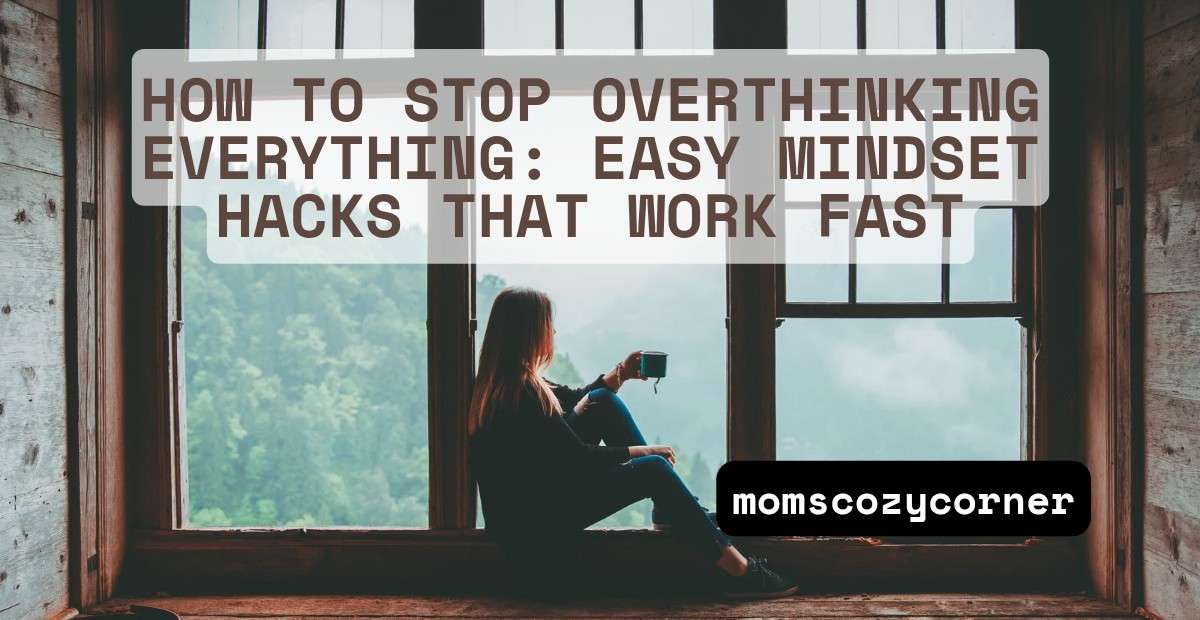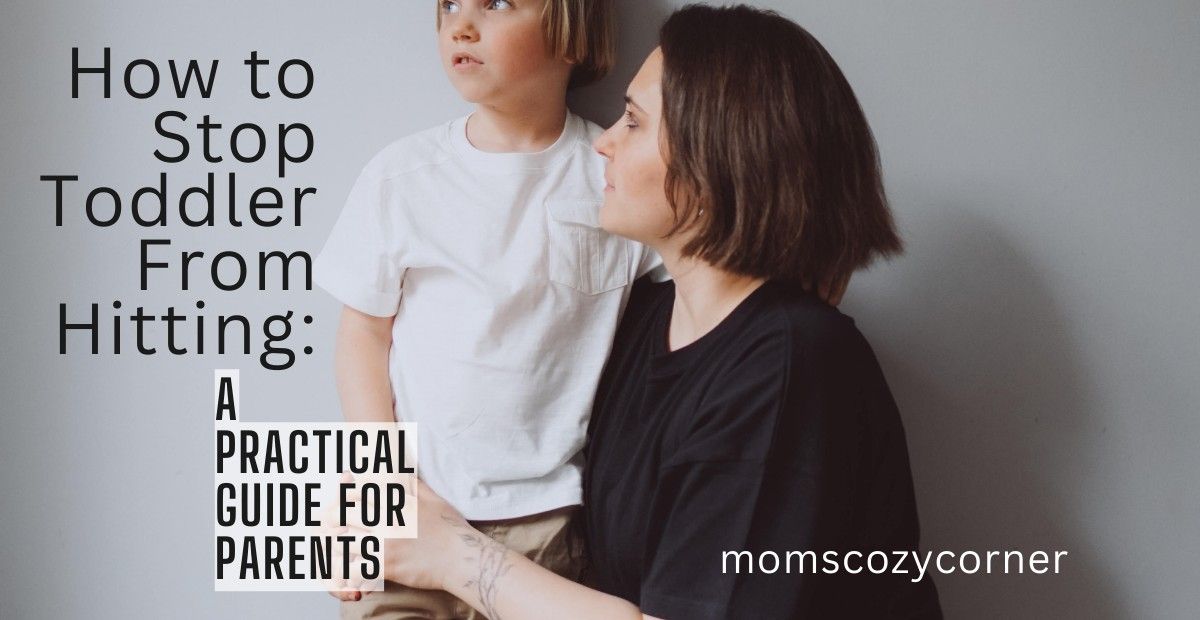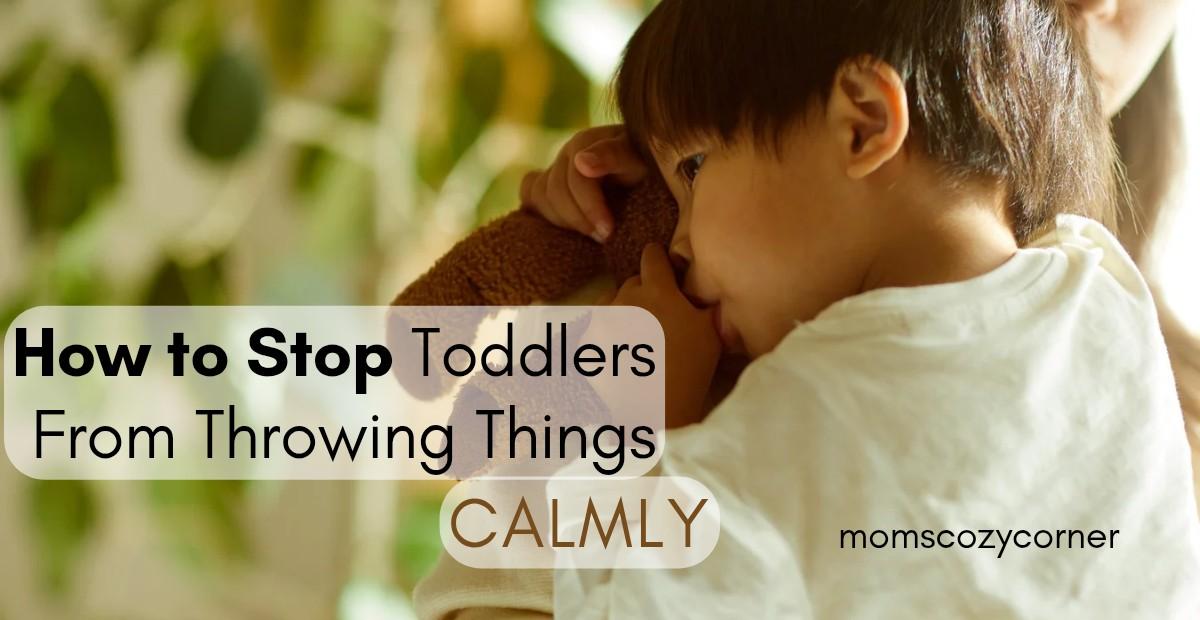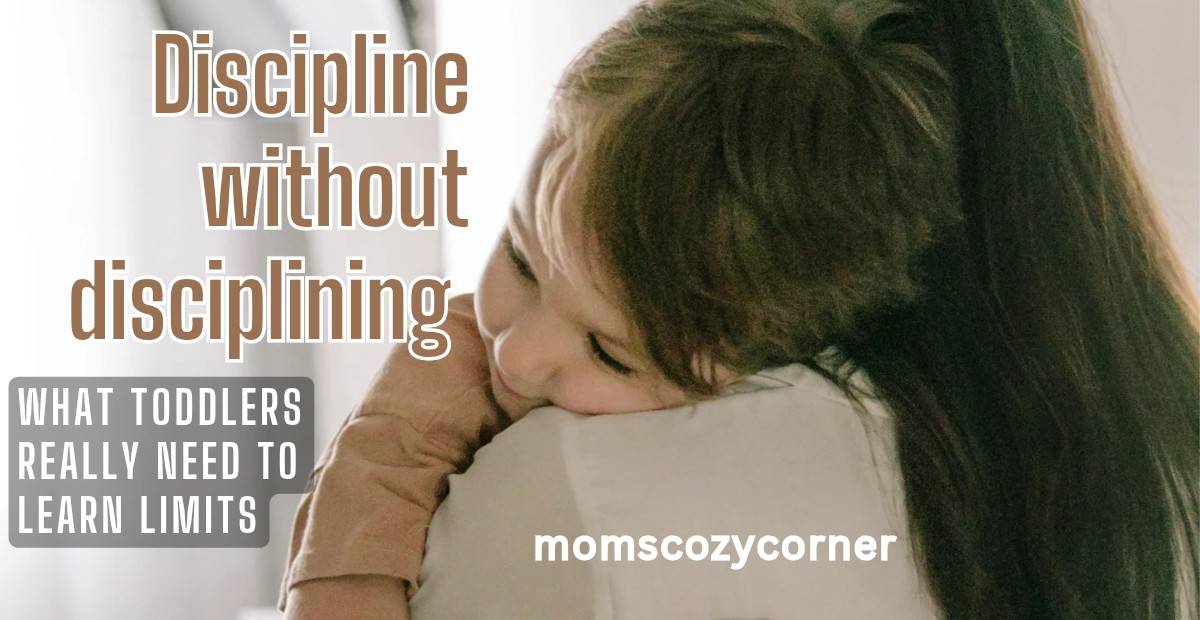Struggling With Overthinking? Here’s How to Stop Overthinking Everything
Introduction
You know how we all overthink, right? Like, what to cook, why we snapped at the kids, or why life just feels a little… messy sometimes. And yeah, sometimes our minds just won’t let it stop—overthinking moments over and over. Why did I say that? Will it happen again? Are they upset with me?
From the outside, overthinking often looks like a bad thing. But think back to when you were a kid and lost a pet. You’d remember the happy moments, cry, and feel stuck in that sadness. Adults would say, “Don’t think about it; you’re overthinking.”
But here’s the thing—overthinking isn’t bad. It happens because you care, because you love, because something matters. The problem is getting stuck in it. If you learn to process these thoughts the right way, even “negative” feelings can lead to understanding, calm, and growth.
In this article, I’ll show you what overthinking really is, how it sneaks into daily life, and practical ways to manage it—so it becomes a tool for clarity, calm, and a little personal growth.Plus, we’ll include mind hacks from my cluster article How to Stop Thinking About Something That Bothers You – Simple Mind Hacks That Work so you can get straight-to-action techniques that really work.
Why Do We Overthink Everything?
We usually overthink, hoping to find a solution, but that’s not always the case. Sometimes, our mind just won’t stop—overthinking when we lost a pet as a kid, replaying moments to console ourselves. Or when we’ve made a mistake, we dwell on it, seeking justification instead of real solutions.
This is when overthinking drains our energy and becomes a trap, not a tool.

The Brain’s “What-If” Habit
As moms, we live in a constant loop of “what ifs.” For me, it started with my daughter being introverted like me. I’d think, what if she doesn’t socialize at school? What if someone bullies her? What if she keeps it all inside and never tells me? The list never ends.
But it’s not just about school. When I scold her, another set of what-ifs rushes in—What if she starts hating me? What if she learns the wrong way to handle her feelings from me? We want our kids to grow up kind, lovable, and strong, yet sometimes I wonder, am I setting that example myself?
At the heart of all this, we believe our overthinking comes from love and protection. But truthfully, these “what ifs” don’t protect us or our kids—they only drain our energy and peace.
If you’re ready to shift your mindset and learn how to be a more positive person, check out this guide—it breaks down small, practical steps that actually bring change.
Emotional Load for Moms
From the outside, folding laundry looks like a simple task—but inside, a mom’s mind is running a marathon. While my hands are busy matching socks, my head is already juggling a dozen things. Did my daughter eat her breakfast? I rushed her this morning—maybe I should wake her up earlier tomorrow. But then again, after a late night of writing, will I even manage to wake up on time? That thought jumps into what should I cook to make mornings easier? Then it skips to what will I write today—will my mom readers actually connect with it? Am I even doing it right?
And before I know it, I’m thinking about how blessed I am that my husband supports my blogging—even if he sometimes ignores my morning requests for help. One small chore spirals into emotions, worries, gratitude, and doubts. That’s the weight of a mom’s emotional load.
Signs You’re Spiraling vs. Just Reflecting
Overthinking isn’t always bad—it becomes a problem when it spirals out of control and you just can’t stop—overthinking every little detail. Take a school project, for example. Reflection looks like this: How can I help my daughter finish the project on time? What steps can I take to guide her? Your mind is calm, focused, and solution-oriented. Spiraling, however, jumps to: She doesn’t know anything, we can’t finish on time, it’s impossible, I’ll fail her.
Even after a fight with your partner, reflection might sound like, “What went wrong?” How can I respond better next time? Spiraling turns it into: My life is miserable, other moms have perfect husbands, I’m unlucky, and nothing will ever work out.
The difference is clear—reflection guides you forward; spiraling traps you in worry loops with no solutions.
Quick Takeaways for Us Moms
- We overthink mostly with good intentions—trying to solve problems or figure out how to handle things.
- That sneaky “what-if” loop? Yeah, it keeps our minds racing about kids, partners, and everyday stuff.
- Even simple chores—folding laundry, cooking breakfast—can turn into a full-blown mental marathon.
- Reflection vs. spiraling: Reflection helps us learn and plan calmly. Spiraling? It just traps us in worry loops with no answers.
- Spotting the difference between the two is gold—it’s how we can turn overthinking into something actually helpful.
What If My Intrusive Thoughts Are Real?
Do you ever get those weird scary thoughts out of nowhere? Like you’re not even thinking about anything serious, and boom—your mind jumps?
Yeah… I get that. It happens to me all the time. Like when my husband is just a few minutes late, and boom—my brain starts cooking up the wildest “what if” stories. And in that moment, it feels so real, like something has to be wrong. But later, I realize it’s just my mind being dramatic. Those thoughts aren’t truth. They come from love, not actual danger.

A mom holding her child close — the heart behind every fear.
Why Intrusive Thoughts Feel So Real
Intrusive thoughts feel real because of the amygdala—the fear center of the brain. Its job is to react fast, even before you think. So when a scary thought pops up, the brain instantly says, “This might be danger,” and that quick reaction makes the thought feel true for a moment. Then the worry–stress–overthinking chain begins.
For example, when my daughter got food poisoning after eating prawns, my brain immediately locked onto that one food. Even though she ate many things that day, my mind kept saying, “What if it happens again?” It felt real… but it wasn’t.
Moms go through this constantly:
- What if my kid doesn’t make friends?
- What if someone hurts her feelings?
- What if she gets upset because I scolded her?
These thoughts feel big because the brain reacts fast — but feeling real doesn’t mean the thought is real. Every mom experiences this; we just don’t admit it often.
The Truth About Intrusive Thoughts vs. Real Intentions
Intrusive thoughts and real intentions don’t come from the same place at all.
Intrusive thoughts come from fear.
Real intentions come from your heart.
Take my example:
After that scary hospital incident, I was terrified to give my daughter prawn again. So my mind threw a fear-based thought:
“What if it happens again?”
But that wasn’t my real intention.
My true intention was simple:
“I just want to protect her and keep her safe.”
That comes from love—not fear.
And here’s the easiest way to tell them apart:
- Real intentions shape real actions.
- Fear-based thoughts don’t.
Instead of banning prawns forever, a realistic action could simply be
Limiting the quantity → keeping her safe → reducing my guilt.
So remember:
- Intrusive thought = fear of speaking
- Real intention = your heart speaking
And the heart never lies.
How to respond when a thought scares you
Intrusive thoughts happen to everyone, and the way we respond makes all the difference. After my daughter got food poisoning, I was terrified to give her prawns again. I told my mom how scared I was, and she reminded me of something simple: the more you try not to think of something, the louder it gets—the classic white-bear effect.So instead of fighting the thought, I took one small, practical step: I didn’t ban prawns; I just reduced the quantity. My mom did the same when I broke my arm as a kid—she adjusted things to feel safer, not perfect. And that’s the trick. A tiny action sends a calming signal to your brain, quieting the “what-if” loop.If these thoughts show up daily or keep you stuck, talking to a professional is absolutely okay—many moms do it.
If this is something you struggle with often, I’ve written a full guide here:
What If My Intrusive Thoughts Are Real? (A Mom’s Guide to Understanding & Handling Scary Thoughts)
Key Takeaways
- Intrusive thoughts seem real in the moment because your brain freaks out first and thinks later—even when it’s totally a false alarm.
- These thoughts come from love and protection, not your real intentions or who you are as a mom.
- Real intentions lead to real, practical actions, while intrusive thoughts are just fear-based “what-if” bursts.
- Taking small solutions (like adjusting routines or reducing risks) helps signal safety to your brain and quiets the spiral.
- If scary thoughts show up often or affect your day, talking to a professional is completely okay—many moms do it.
The Hidden Impact of Overthinking
We often think overthinking is “just in our head,” but it isn’t. When my dad’s close friend passed away, the sadness sat in my mind all day. By evening, it spilled over—I snapped at my husband for not helping with chores. That’s how overthinking quietly seeps into daily life.

Mental & Emotional Toll
You know how our minds never really switch off? As moms, we’re constantly juggling thoughts—about the future, money, health, kids, and even tiny comments from others. A little worrying is okay; it keeps us prepared. But when it lingers, that’s when overthinking sneaks in and starts weighing us down.
Like one morning, I woke up already in a low mood. The night before, I couldn’t sleep till 2:30, stuck on money worries. By 6, I was in the kitchen making breakfast. My husband came out smiling, said a simple “good morning,” and instead of smiling back, I snapped. Complained about him not waking early, not watering plants—basically unloaded everything. He just walked away quietly. Later, I realized it wasn’t him—it was me. The lack of sleep, the racing thoughts, the mental heaviness—it all spilled over. That’s how overthinking quietly drains our emotions.
Physical Effects
You know what’s funny? Before marriage, I never even knew what a migraine felt like. Back then, my only “big duty” was studying hard and being the good daughter who listened to her parents. Sure, I worried when I saw my parents fight—that was probably the toughest emotional thing I faced—but overall, under their roof, I felt safe. No financial stress, no major responsibilities.
But after marriage, everything shifted. With the constant responsibilities, late-night thoughts, and emotional roller coasters, overthinking really started showing up in my body. I lost that deep, peaceful sleep I once had, my stamina dipped, and yeah—I even developed migraines. It hit me that stress doesn’t just stay in your head; it leaks into your body. Honestly, overthinking can drain you physically as much as it does mentally.
How it Affects Relationships & Parenting
You know, the tough part is we don’t usually unload all this emotional weight or physical tiredness on outsiders. We show it most to the people closest to us—our partner and our kids. And honestly, it’s our kids who end up carrying the heaviest part of it, because we can’t seem to stop—overthinking and reacting in ways we don’t even mean.
Like one day, I was overthinking about my father’s friend’s death. It shook me because he was so close to my dad, and that sadness stuck in my head all day. I snapped at my husband earlier, and by night even a small thing—like him leaving the bedroom door open—triggered another argument. I kept telling him mosquitoes were flying in and the AC was slipping out, but it escalated. Then I noticed my daughter’s face—so sad just watching us. That broke me. I reassured her, but deep down, I knew—she felt it.
Key Takeaways From The Hidden Impact of Overthinking
- Overthinking isn’t “just in your head”—it sneaks into your mood, your words, and your daily life.
- When your mind won’t switch off, it drains your emotions, steals your sleep, and leaves you snappy.
- Stress doesn’t stop at the mind—it shows up in the body too (hello, headaches, low energy, and migraines).
- The hardest part? Our kids feel the ripple effects the most when we unload on our partner or argue in front of them.
- Spotting these patterns early helps us protect not just our peace but also the little hearts watching us.
Is Overthinking Linked to Trauma or Anxiety?
You know how our past sticks with us? For me, my dad treated my brother and me so differently—he let him do whatever he wanted, but I always had limits. That kind of stuff makes your mind overthink everything later. While overthinking is often viewed as simple anxiety, the root cause of that anxiety is often an unresolved trauma response.

Is Overthinking a Trauma Response?
Honestly, overthinking can totally be a trauma response. Everyone’s been through something rough—losing loved ones, getting bullied, getting labeled by teachers, or even small, constant things at home. Those little moments stick, just like big trauma, and they shape how we think and react.
For me, growing up wasn’t easy. My brother got more freedom, my parents compared us constantly, and I was often labeled as “average” or “not bright.” Even comments about my looks or skin tone chipped away at my confidence. That trauma didn’t just disappear—it follows me. I overthink decisions, worry about being judged, and honestly, I’m still not confident showing my face online, which is why I write instead.
See, overthinking isn’t always random—it’s our brain trying to protect us after trauma. Understanding that can help us be gentler with ourselves.
Want to understand the trauma-overthinking link even deeper? Read my full guide here Is Overthinking a Trauma Response? Find Out Here.
Trauma & Triggers That Fuel Overthinking
Trauma affects everyone differently, and sometimes old experiences sneak back into our thoughts when we least expect it. For example, imagine someone had a bad past relationship with a colleague or mentor. Even years later, just seeing another person in that same profession can trigger a flood of memories—what happened, what they said, how it made them feel—and suddenly, the mind just won’t stop—overthinking all over again. It’s like the mind refuses to let go.
Other triggers could be voices, words, or environments that remind us of past emotional hurt, like a teacher’s harsh comment or a judgmental parent. That’s why some moms overthink decisions for their kids, like homeschooling, even if it’s not strictly necessary—the old trauma is quietly steering their thoughts. Recognizing these triggers helps us understand why our mind spirals and how to pause before it takes over.
Quick Takeaways
- Overthinking can be a trauma response, not just random worry.
- Both big and small past experiences—loss, bullying, or constant criticism—can shape overthinking patterns.
- Childhood experiences, like unfair treatment or negative labels, affect confidence and decision-making in adulthood.
- Triggers—people, places, words, or situations—can unexpectedly revive past trauma and fuel overthinking.
- Recognizing trauma and its triggers helps us pause, understand our reactions, and respond more gently to ourselves.
Anxiety and Overthinking Cycle
Overthinking sparks fear, and fear sparks more overthinking—it’s a cycle even kids get stuck in. Like when a child learns to ride a bike: What if I fall? What if it hurts? They freeze, stop trying, and then even if they start again, fear hits, overthinking follows, and the chain continues.
Break The Rumination Cycle
You know the difference between overthinking and rumination, right? Overthinking is that broad stuff—we’re worrying about the kids’ school performance, the finances, the future, or even how to handle a fight with our partner. Rumination, though, is way trickier. It’s when your mind fixates on one particular past incident—you just keep replaying it, without thinking about breakfast, the kids, or anything else. That’s when it really drains you.
Here’s how I use the popular 5-4-3-2-1 rule, but in my own way, to calm my nerves. If I’m outdoors and see a couple sharing happy moments, I don’t envy them. I intentionally recall the joyful moments I’ve shared with my husband—like that exact park where we laughed, or I touch the watch he gifted me and feel that love. Crossing a coffee shop, I smell the coffee and take a sip—it grounds me and snaps me out of the spiral. Indoors, I scroll old photos and remember the little things, and it slowly brings my mind back to calm.
If your overthinking is fixated on a person—like an old partner, a difficult colleague, or a judgmental relative—you might be stuck in a specific rumination loop. For instant, practical techniques to get your mind unstuck from thinking about that specific person, check out these simple mind hacks that work: How to Stop Thinking About Someone and Break Free from Obsession.

Gentle Brain Retraining
As a mom, I often get parenting advice from everyone around me. And honestly, that used to trigger me so much that I’d end up arguing with the person—and the overthinking would drain my energy for hours. That’s when I learned to stop—overthinking on autopilot—by using a technique called the Worry Window. The concept is simple: spend 10 to 30 minutes a day writing down your worries, analyzing them, and figuring out solutions. It’s like giving your worries a “window” of time so they don’t spill over into your whole day.
But as a busy mom, who really has that kind of time? So what I do is, whenever I find something to deal with—like all that parenting advice I get so often—I consciously observe the situation and decide: is this person worth explaining my point to, or should I just say, “Yes, I’ll try my best,” and move on? Recently, during my daughter’s online class, one of my relatives criticized me for not teaching her good manners, like greeting the teacher properly. Normally, I would have argued and stewed over it, but this time, I followed my plan: I said, “I’ll try,” and ended it. That simple decision stopped the overthinking cycle and saved my energy.
Creative Expression & Grounding
Another way I handle overthinking is through creative expression and grounding. Honestly, writing has been my lifesaver—it helps me let out emotions, analyze incidents, and see how I reacted. Every time I share an incident, like the parenting advice or my triggers, I reflect, learn, and practice better next time. Over time, this has helped me improve my responses and stop letting small things spiral.
Grounding works hand in hand with this. Grounding is basically any trick or technique that brings your mind back to the present moment, helping you stop spiraling into those “what if” or scary thoughts. Overthinking often pulls me into the past, replaying old arguments, or drags me into the future, imagining how things could get worse.
Grounding helps me return to the present moment, keeping my focus on what’s really happening, the triggers in front of me, and even the other person’s point of view. It’s simply about tuning into what’s around you—like the breeze in the park, the aroma of coffee, or a photo or gift from your husband—and letting those little things ease your nerves.
Key Takeaways
- Overthinking and fear feed each other—recognize the cycle before it spirals.
- Overthinking is broad worry; rumination fixates on one past incident.
- Use your senses (5-4-3-2-1) to ground yourself and break rumination.
- Apply the Worry Window in real time—decide whether to respond or just move on.
- Creative expression plus grounding keeps you present and calm and stops overthinking naturally.
Practical Strategies to Retrain Your Brain
We often wonder if retraining our brain is even possible. I used to question it too, until I tried applying small, practical strategies. Honestly, the changes brought me more peace and emotional control than before.

Daily Habits That Quiet The Mind
Yeah, daily good habits and following a routine can really help you keep overthinking in check. I used to wake up early thinking I’d have extra time to get everything done, but honestly, half of that time went just scrolling my phone. That’s when I realized—it’s not just about waking up early; it’s about being mindful while doing my chores. So I decided, no phone, focus on what I’m doing, take it slow, and actually enjoy the process. Even a good habit like yoga or walking won’t calm your mind if you rush through it with stress. I realized the key is to pick habits you enjoy—gardening, painting, singing aloud, dancing—and be fully present. Balancing both your routines and emotions helps keep overthinking under control and makes you feel genuinely calmer.
Self-Compassion & Affirmations
You know, we always think everyone else has it all figured out—but do we really believe in ourselves? I used to struggle with that a lot. Comparing my parenting, my relationship with my husband, or even my finances would send my mind spinning into overthinking. That’s when affirmations and being kind to myself really helped.
The thing I noticed is my affirmations aren’t fixed—they change depending on what’s happening. If I have a fight with my husband, I focus on relationship affirmations, reminding myself we can bounce back and cherish the good moments. If I’m stressed about money, I repeat things like, “I can be financially stable soon, and I can handle this.”
These little reminders help me pause, calm my thoughts, and stop—overthinking before it spirals out of control. It’s like giving myself tiny doses of love whenever life gets tricky.
Therapy & Professional Help
Look, I’m just sharing what worked for me—but that doesn’t mean it’ll work the same for everyone. Every mom has her own story—past, relationships, stress—and sometimes even after trying all the tips, you still feel stuck. That’s totally okay. If you ever feel like you need extra support, getting professional help is not failing. It’s a strong, smart step toward taking back your calm and happiness. Some tips will click for you, some might not, and that’s perfectly fine. The key is noticing when you need a little guidance and not being afraid to ask for it. Caring for yourself helps you stay grounded, even when life gets overwhelming.
Key Takeaways
- Doing small daily habits—like taking a mindful walk, focusing on chores, or enjoying a hobby—can help calm your mind.
- Being kind to yourself and using affirmations that match your situation can stop overthinking and boost confidence.
- Balance is key—your routines and emotions need to work together to really calm your mind.
- Everyone’s journey is different. If self-help tips aren’t enough, getting professional help is completely okay. It doesn’t mean you failed.
- The main point: notice your triggers, use simple strategies, and take care of yourself to keep overthinking under control.
5 Mom-Tested Hacks to Stop Overthinking
Hack 1: Celebrate Mini Wins
Instead of waiting for big events—like a new car or a husband’s raise—to feel successful, celebrate daily little wins. Fold that laundry after a few days, cook a homemade meal, or finish a small task—treat it like a major achievement. Consciously feeling proud of these mini victories gives a daily boost, keeps your energy up, and helps break the overthinking cycle. It’s simple, effective, and anyone can do it!
Hack 2: Take Small Breaks
Sometimes your mind just gets stuck, running the same thoughts over and over. That’s when I pause for a little break. Maybe I sip my coffee—just me, enjoying it quietly—sometimes I water the plants, feed the fish, or even take a short nap. It depends on the day and my mood; there’s no rigid rule. Forcing yourself to push through chores when your brain feels foggy usually makes them take longer than the quick break would. These mini-pauses aren’t wasted time—they actually help me reset, focus better, and stop—overthinking from taking over.
Hack 3: Bedtime Brain Dump
One of my favorite ways to stop overthinking is what I call a bedtime brain dump. After storytime, when the lights are off, I share my day with my kids—from morning till night—talking about what happened, the small wins, and even little frustrations. It helps me process the day, reflect on happy moments, and notice what I’m grateful for. Some nights, I write it all down; other nights, I simply think it through in my mind. Either way—writing it down or just thinking about it in my head—helps me feel clear and calm. Doing this not only stops my overthinking but also sets a little example for my kids to notice and think about their own day later. By bedtime, I feel lighter, more relaxed, and ready to start the next day without getting stuck in those “what if” thoughts.
Hack 4: Phone-a-Friend Check-In
You know, whenever my mind won’t stop spinning, I usually call a friend—or sometimes my mom. I know she’ll actually listen to my story without judging. If I can’t share with her, then I reach out to a friend. And it really depends on the issue—like, I won’t choose the same person every time. I usually have my little trust circle, like 3 or 4 people max. That way, I know who to talk to depending on the situation and my mood. Just pouring it out like this really helps lighten the mind and stop that overthinking spiral.
Hack 5: Digital Declutter
Social media isn’t all bad—I’ve learned a lot from it. But honestly, most of the time I’d spend 20 minutes scrolling, and only 2 minutes were useful. The rest just ate up my day. Whenever I caught myself and cut back, I noticed the difference right away. I had more time to finish my chores, cook meals on time, and even get ready to pick up my daughters from school without rushing. So, for me, digital decluttering isn’t about avoiding everything—it’s about being wise with what I watch and when I watch it.
I’ve put together a cluster article with super practical mind hacks that help stop overthinking right away. You can check it out here: How to Stop Thinking About Something That Bothers You – Simple Mind Hacks That Work.
What Is The Best Therapy For Overthinking?
You know, there are tons of therapies out there that claim to help with overthinking. But after doing my own digging, one that kept popping up again and again is CBT—Cognitive Behavioral Therapy. Don’t worry, it sounds fancy, but the idea is pretty simple.
Here’s the deal: if you feel like your mind is always racing, stuck in negative thoughts, worrying about the future, or just drowning in stress and anxiety, CBT can really help. What the therapist basically does is help you notice those negative thought patterns and gently guide you to stop—overthinking and turning them into more helpful ones. They also look at your daily habits—like scrolling endlessly on your phone, delaying chores, or zoning out—and show you how those habits tie into the overthinking cycle.
It’s not one-size-fits-all, either. Every person is different, so a therapist will adjust the approach just for you. The whole goal? To swap out those draining thoughts and behaviors for healthier ones that bring a little more calm and control back into your day.
Think of it like training your brain to stop spiraling. Over time, it can ease your stress, anxiety, and frustration—and yep, it helps put a lid on that nonstop overthinking.
If you’re curious about the deeper, more professional side of CBT, I’ll drop a link here so you can check it out. Cognitive Behavioral Therapy (CBT)
Finding Your Path to Peace
Overthinking isn’t always the villain—it’s like any other emotion. If we handle it the right way, we can stop—overthinking from taking over and actually let it guide us instead of drain us. for me, and if even one of them helps you, that honestly makes me so happy. And hey, don’t forget to drop a comment if something here clicked for you—that’s what keeps me motivated to keep writing and sharing my real-life experiences. Also, if you know another mom who might need this little boost, feel free to share it. At the end of the day, parenting is universal, and we’re all just trying to support each other.





